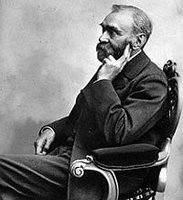
Dear Reader,
Albert Einstein is supposed to have said or written "The significant problems we face cannot be solved at the same level of thinking we were at when we created them." Or perhaps it was "The problems that exist in the world today cannot be solved by the level of thinking that created them." Maybe "Problems cannot be solved at the same level of awareness that created them." Or is it "We can't solve problems by using the same kind of thinking we used when we created them?" Could it be "No problem can be solved from the same consciousness that created it?" Perhaps he wrote or said none of these things. Perhaps all of them.
These are popular quotes to attribute to Einstein, but most people attributing any of these things to him do not seem to care whether or not they are really his words. They are putting words in his mouth to strengthen what they want to say with an appeal to authority, which I wrote about in an earlier blog entry. If we are fortunate, the words they are putting in his mouth are indeed his own. They do not know, and neither do I.
Whoever wrote or said these words, I believe them. Or more correctly, any mode of thinking permits an individual or a culture to solve certain problems and requires them to create others, and those it creates it cannot solve because they tend to accumulate around its blind spots and Achilles' heels. These occur as the necessary flip sides of its strengths, and so cannot be removed without also removing those strengths and indeed the very character of that mode of thinking. That is, the distinctive strengths of any system simultaneously and necessarily generate equally distinctive weaknesses that can only be avoided by radically transforming that system at its roots, changing the very strengths that gave it its character and identity. To break free of those genetic defects, the only option is metamorphosis, which unfortunately is anathema to hubristic ego, so the defects stay.
We create most of our own problems, and not by accident but by the very forms of our character, by our mentalities, that is, our forms of reasoning and motivation. This is why technology will never solve our primary problems. New science and new technology are something new to think about, but we think about them with the same minds that created the problems in the first place. Science does not lead to enlightenment; the Nazis loved science so much that to advance certain scientific programs after World War II America had to import Nazi scientists. Science is proudly value-neutral, focused on utility, a tool at home in the hands of sinners and saints alike. Tools operate upon extrinsics. Our core problems are intrinsic, where tools cannot reach.

Somehow, mysteriously to us, every new promise of utopia ends up just another market commodity. We focus on changing the externals that were never truly responsible for our predicaments, then wonder that the problems persist or even accelerate under the new conditions, like bacteria growing ever more virulent under the pressure of our wonder drugs. Alfred Nobel, inventor of dynamite was appalled when his fabulous new tool for construction was promptly put to work blowing up his fellow human beings, and created the Nobel Prizes as an apology to humanity, or so the story goes.
In other words, the problems we face are primarily ad hominem. There is nothing so noble that a barbarian will not put it to barbaric purposes, and in the great scheme of things we are all barbarians. The problem is not the tools at our disposal, not the things we have to think about. The problem is what we are thinking with. If the human race is to survive, we need something new to think with. The current model is dangerously defective. And no, the answer is not artificial intelligence, nanotechnology, or genetic engineering; those answers represent more of the same level of thinking that got us into this mess.
My friend Kenneth Smith likes to say "Every other field of study gives you something new to think about. Only philosophy gives you something new to think with." This philosophy is not the empty academic cataloging of philosophical writers and their dates and titles and quotations, nor is it the abstracted, schizophrenic elaboration of complex but arbitrary schemes of ideal forms and their interrelationships beloved by timid intellectuals. Rather, what gives us something new to think with is the lifelong project of cultivating a better character in the Ancient Greek sense, of striving to develop eudaimonea,a coherent inner cosmos, of struggling against ourself to find our blind spots and feel out the architecture of our character so we can figure out how to grow beyond what we are today - to deliberately undertake our own maturation.

In a culture like ours, none of us has eudaimonea. We all have dysdaimonea - dysfunctional characters that afflict us so that we in turn afflict the world. In the immortal words of Walter Crawford Kelly, Jr., creator of the classic comic Pogo, "We have met the enemy and he is us." If we want to make a better world, we must first make better people. The kind of world we have is what the kind of people we are can and must create. Above all, the problem is not all those other people - it is ourselves. We must make ourselves better from the inside out. Doing this will change how we see the world, how we value it, and how we think about it, and that will change what we do about it.
Yours truly,
Rick
No comments:
Post a Comment